Description
Introducing the book sapiens: A Brief History of Humankind
“Wise Man” is a historical and scientific narrative of the origin and evolution of man. By examining the biology and history of man from a hundred thousand years ago to modern man, the author enhances our understanding of man and humanity. Dr. Yoval Noah Harari, an Oxford University graduate and professor of world history at the University of Jerusalem, published the book in 2014. The Wise Man has been translated into more than forty living languages and is one of the New York Times bestsellers.
In this book, the author divides the course of human biological and intellectual evolution into four parts: the cognitive revolution in which man knew himself and those around him. The agricultural revolution that took place between 8500 and 9500 BC and made man a successor. The third section is about human unity, which shows how political organizations gradually consolidated and moved toward a global empire. In the fourth part of the book, he deals with the subject of the scientific revolution and how this change caused human beings to become the rulers of this world by destroying other species.
Seventy thousand years ago, the “wise man” was an insignificant creature that had no greater impact on the environment than any other living thing. He was trying to survive only among other creatures; But due to biological changes and other adaptive changes with the environment, such as fire discovery, teamwork, making tools, etc., climbed to the top of the pyramid of living things. The need to adapt quickly to the environment, the feeling of fear, the sense of overcoming the environment and other beings, made him very cruel, aggressive and dangerous, and now he considers himself the god and lord of the world.
At the end of the book, Harari raises the issue of man’s claim to divinity and says that although man has done wonderful things so far, he is still unhappy and dissatisfied and does not know what to do with the power he has. We have become self-made gods who seek nothing but our own comfort and happiness, and we will never be satisfied again. Is there anything more dangerous than unhappy and lazy gods who do not know what they want?
This work is written for all history researchers and those interested in new topics in human history, and of course for all those who want to know where humans came from and what their future will be.

The book sapiens: A Brief History of Humankind – The first edition of which was published in Persian in 2017, has now reached its eleventh edition in May 1397, a year later, and it seems that the reception of this good book continues. The original title of the book is sapiens: A Brief History of Humankind, which was translated into English in 2014 and has been translated into more than 30 languages.
This book by Yoval Noah Harari has always been on the bestseller list and has been suggested by personalities such as Barack Obama (the 44th President of the United States) and Bill Gates (the founder of Microsoft).
Dr. Yoval Noah Harari holds a PhD in History from the University of Oxford and currently teaches world history at the Hebrew University of Jerusalem. His research focuses on pervasive questions:
What is the relationship between history and biology?
Is there justice in history?
Have human beings become happier by revealing historical facts?
“I urge everyone, regardless of their beliefs, to question the fundamental narratives of the world, to relate past developments to current interests, and not to be afraid of controversial issues.”
Much has been written in praise of the wise man. Here are some of them:
The Daily Telegraph – A London newspaper founded in 1855:
Harari’s transparency in the fields of evolutionary biology and anthropology and economics, and his historical leanings, is very pleasing. Do not stay away from him to learn many things.
Jared Permanent – Scientist and author of the book Collapse:
The wise man has entered the list of the best-selling books in the world with a lot of controversy. The reason is simple: it deals with the greatest issues of history and the world today, and is written in incredibly vivid and unforgettable language. You will fall in love with it!
The Sunday Times – The best-selling English newspaper:
A book that sheds the cobwebs of your brain. Harari is a skilful intellectual whose sudden logical gestures amaze and amaze the reader. The sharpness of his pen makes the world look amazing and new.
The Times – A national newspaper in Britain, founded in 1785:
Harari is literally a writer, a really smart writer with a clear and delicate pen. His attitude towards life metaphors is amazing.
Summary of the book sapiens: A Brief History of Humankind
As the subtitle of the book suggests, this book is a brief history of mankind, and it is indeed a brief and, of course, useful history. The author tells the history of man from 2.5 million years ago to the present in only 568 pages. Harari has used authoritative sources and research by other scholars throughout the book to write The Wise Man, and we are in favor of a science book with a good foundation.
Every important event that has taken place throughout human history is described in this book: What happened to different species of human beings? What happened to the huge animals? How did the brain evolve? How did the fire affect history? Why did empires and governments come into being? How and why was money invented? What effect did Christianity and Islam have on man and history? And most importantly, where does the species of the wise man go?
About 70,000 years ago, Homo sapiens creatures began to create much more complex structures called cultures. Subsequent developments in these human cultures were called history.
The path of history was determined by three important revolutions: The cognitive revolution about 70,000 years ago lit the engine of history. The agricultural revolution accelerated this process about 12,000 years ago. The scientific revolution, which began just 500 years ago, could be the end of history and the beginning of something completely different. The subject of this book is the story of the impact of these three revolutions on man and other creatures that live next to him. (Wise Man – Page 23)
One hundred thousand years ago, at least six human species lived on Earth. There is only one left today: we, the wise people.
How did we win the battle for supremacy? Why did our hunter-gatherer ancestors build cities and establish kingdoms? How did we believe in gods and nations and human rights, trust in money and books and laws, and enslave ourselves to bureaucracy and consumerism and the greed for happiness? What will our world look like in the next millennium?
The wise man boldly, comprehensively, and controversially challenges everything we have ever known about man: our thoughts, our behavior, our actions, our authority, and our future.
Table of Contents of The Wise Man – A Brief History of Mankind:
Part One: The Cognitive Revolution
Existence insignificant
Knowledge Tree
A day in the life of Adam and Eve
The Great Storm
Part II: The Agricultural Revolution
The biggest deception in history
Build pyramids
Memory overload
There is no justice in history
Part Three: Human Unity
Arrow of History
The scent of money
Imperial Insights
The law of religion
success secret
Part 4: The Scientific Revolution
Discover ignorance
The link between science and empire
Kish Capitalism
Industry cycles
Permanent revolution
And they lived well and happily for the rest of their lives
The fate of the wise man
The last word: a creature who became God
Yoval Noah Harari has another book called Homo Deus: A Brief History of Tomorrow that has not yet been translated. It can be said that this book is a continuation of the book of the wise man, which talks about the future and what awaits man. We hope that this book will be published like a wise man with a good translation.
About the book sapiens: A Brief History of Humankind
For several months now, most of my reading friends have recommended that I read this book. But there was never a good opportunity to study it. Finally, in the 1397 book fair, I prepared the book Wise Man and I managed to read it.
The book The Wise Man is like a long journey through history, after which you can easily feel the feeling of maturity. Harari’s pen is unique and literally enchants the reader. Here I suggest you consciously plan to read the book little by little and over time before reading the book. If you start reading it without a plan, you are unlikely to be able to stop reading it.
As you read in the first part of this article, the outstanding feature of the book is that it narrates history without prejudice and without any particular orientation, and this makes the book more interesting. You are free to analyze things and judge the actions of the wise man as you see fit. Things that I believe are becoming more and more violent and destructive.
In his work, Harari examines the behavior of the wise man psychologically, biologically, and sociologically. A human being who has wiped out various human species and exterminated many species of animals. The beginning of the book is amazing, the continuation is great and the end of the book is amazing.
I think the narrative of human history is the best place to start thinking deeply, and in fairness this book also provides the reader with many, many excellent clues for thinking.
The book raises some amazing questions, and the various events of history are masterfully put together. And most interestingly, Noah Harari Yoval questions everything and invites the audience to rethink: What is the use of history? Which way are we moving? Is the destiny of man really clearer today than yesterday? Is a destiny and a bright future waiting for us at all? Are we happier today than we were thousands of years ago?
Are we happier now? Can the wealth that mankind has gained over the last five centuries be interpreted as a new satisfaction? Has the discovery of endless sources of energy opened up endless reserves of blessings for us? Let’s go back and see if the turbulent seventy millennia after the cognitive revolution made the world a better place to live. Was the late Neil Armstrong, who survived on a wind-free planet, happier than the anonymous hunter-gatherer who left his mark on a wall in Shove Cave 30,000 years ago? If not, then what was the use of agriculture, cities, lines, coins, empires, science and industry?
1- Introducing the book sapiens: A Brief History of Humankind on YouTube
2- Introducing the book sapiens: A Brief History of Humankind in Aparat

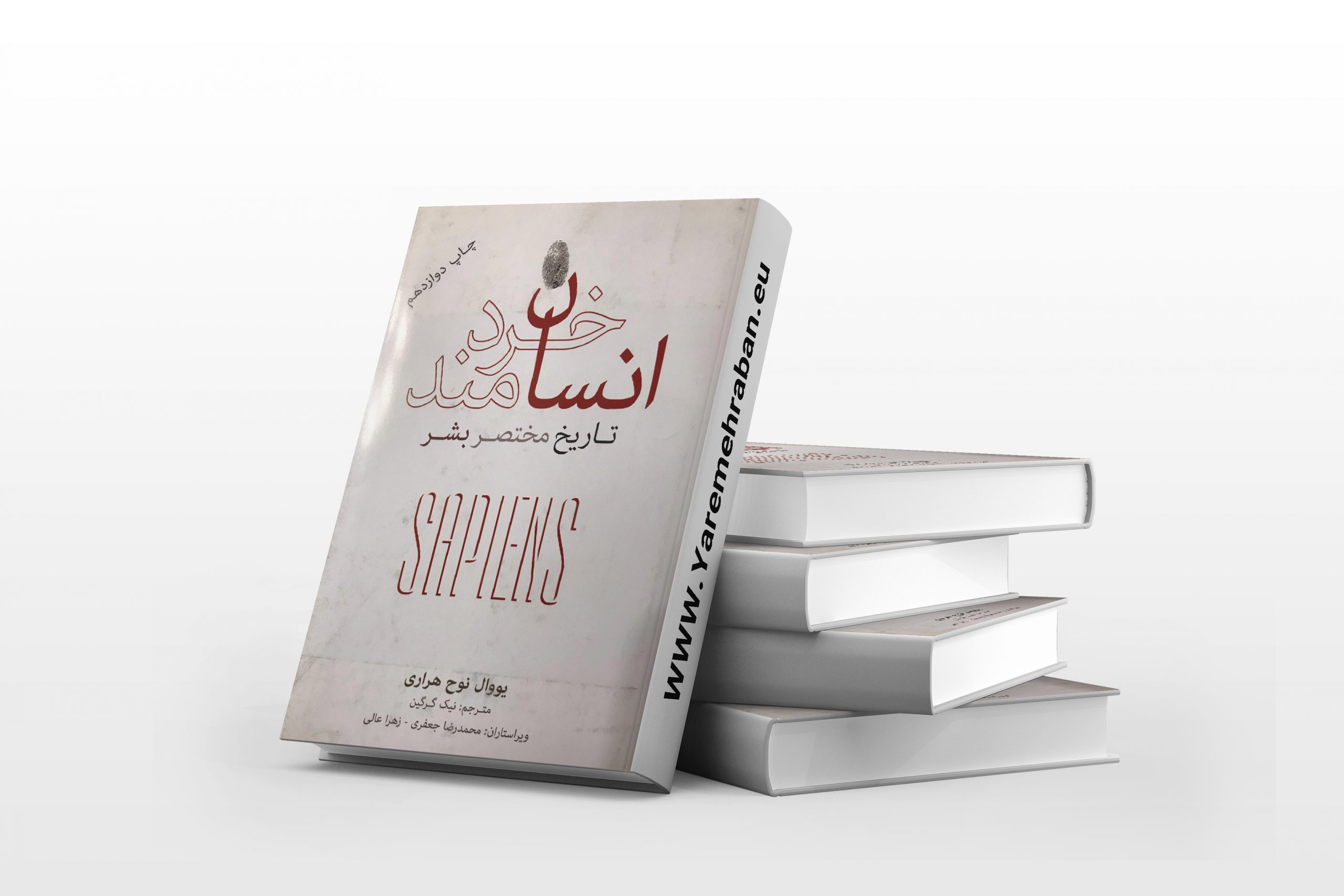


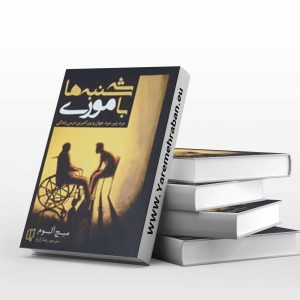


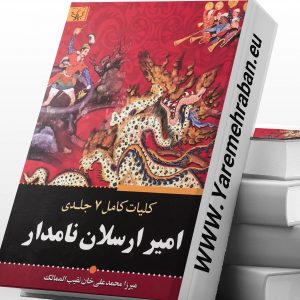

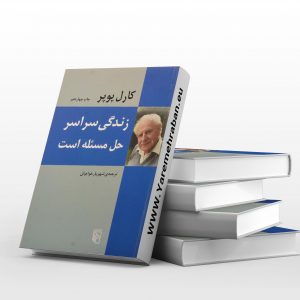
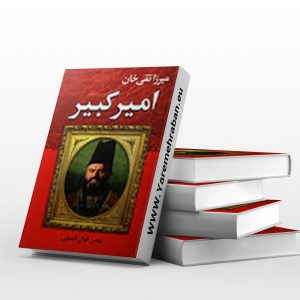
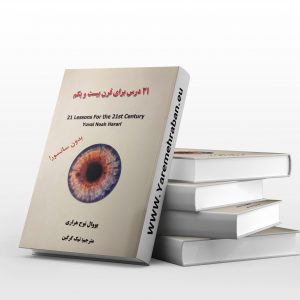
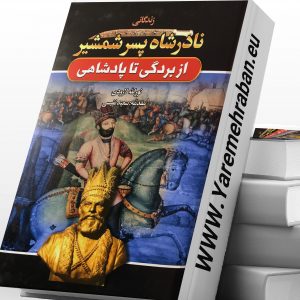
Reviews
There are no reviews yet.